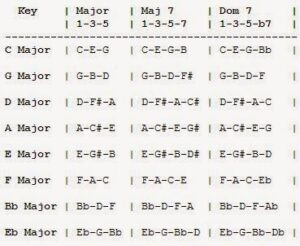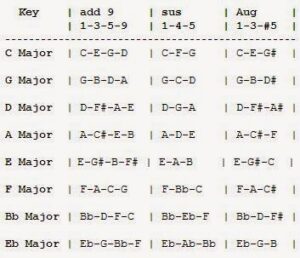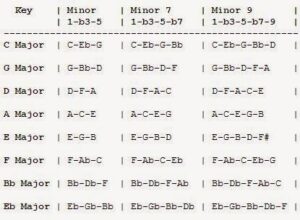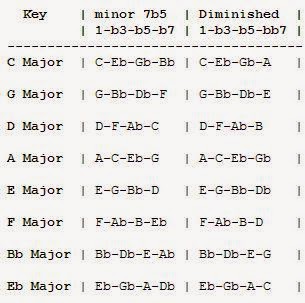Have you ever wondered how many guitar chords there are?..It’s one of those tough question even for a guitar teacher to answer so let’s do some research on this matter.
Chords are named based on the 12 chromatic scale notes so they should be 12 chords right?..Well, not exactly because every chords can also be a major, minor, dominant 7th, minor 7th, diminished, augmented, and there’s the add 9th, the suspended chords and so on. And it gets more confusing for the fact that every chord can also be played in many different locations on the fretboard in various fingerings. So perhaps the best way to understand chords is by looking into the formula for creating a chord itself.
Creating chords are easy, press any three notes on different strings on you guitar and play them together and you got a chord, you may end up with a good sounding chord or a total nonsense but it is still a chord. In short, chord can be thought of as a combination of any three notes (tones) played together. However, there is a formula that you can use to produce a good sounding chord.
Chord Construction Formula
Basic chords are created by applying a formula known as; Triads. Triads are a combination of three notes of the major scale that are a third apart from each other.
Here’s an example of how triads are used to form the ‘C chord’:
C Major Scale
(C)__D__(E)__F__(G)__A__B
_1___2___3___4___5___6__7
In the above example, the note (C), (E) and (G) are a third apart, forming a triad that makes up a ‘C chord’. So regardless of their order and location on the guitar fretboard, any combinations of these three notes are considered as a ‘C chord’ and this is why chords can be played in multiple locations in various fingerings on the fretboard.
So is it necessary to learn all of the different types of chords? Well, it actually depends on your goal and expectation for learning the instrument. If you are learning the guitar for personal entertainment and leisure, then knowing just the basic major and minor chords might be enough because with just these type of chords, you can basically play any song that you wish to learn. In the other hand, if you are learning for a more serious musical purpose for example to be able to teach others, write your own song or to have a career as a professional musician/sessionist, then you will obviously need to learn beyond just the major and minor.
If you want to learn more about the formula for constructing chords, below are chords formula charts for some of the most commonly used chords.





